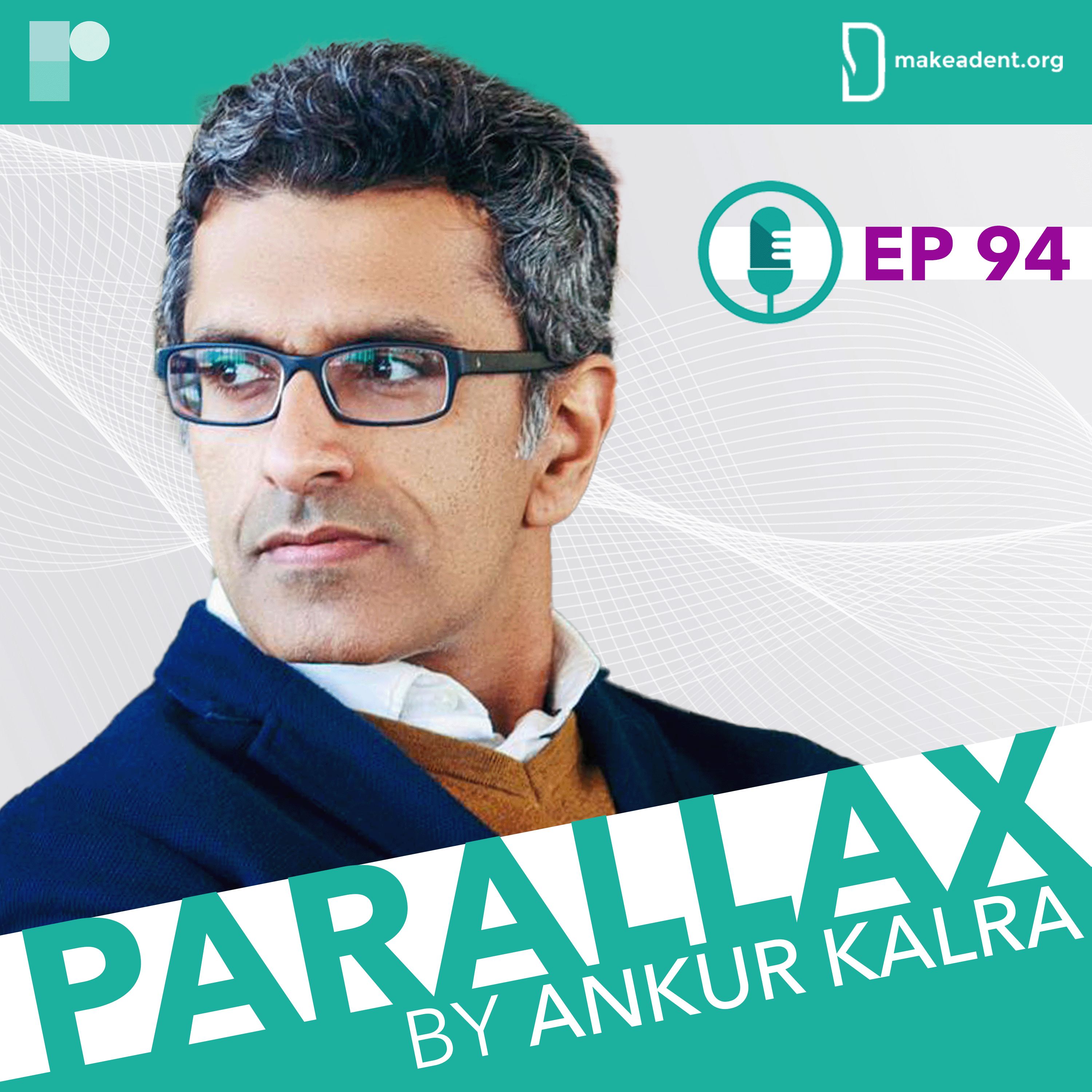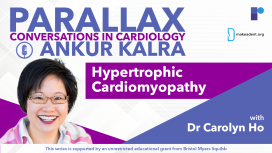
“You should neither take the outcome personally nor fall into the trap of thinking that doing nothing better.”
In this special episode of Parallax, we bring you Dr Ankur Kalra's thought-provoking lecture delivered at the IU School of Medicine Department of Anaesthesia Grand Rounds and introduced by Dr Nandan Anavekar.
In this episode, Dr. Kalra explores the intersection of spirituality and healthcare, encouraging us to reflect on its significance for both patients and providers.
Dr. Kalra begins by defining spirituality and highlighting its interconnectedness with patient care and the broader concept of life. He invites us to think about the various mechanisms behind spiritual experiences and practices, sharing his own personal journey with meditation. Examining studies on the impact of meditative practices like yoga and mindfulness on heart outcomes, he sheds light on their place in healthcare.
Delving into his experiences as a physician, Dr. Kalra presents two patient cases, illustrating how he navigates disparate outcomes. Drawing from Eastern perspectives, Dr. Kalra offers insights from the Bhagavad Gita to encourage a re-evaluation of medicine beyond metrics and focusing on the effort invested in care. He raises important questions about leading a mindful life and the challenge of remaining unattached to outcomes in a metric-driven healthcare system.
What does spirituality mean in the context of healthcare? How can physicians take control of their mindset? And what does the data reveal about the benefits of mindfulness in patient care?

This series is supported by an unrestricted educational grant from Bristol Myers Squibb. Please see www.camzyosrems.com for important safety information.
This content is intended for US-based physicians.


US Cardiology Review journal, has recently seen a 7-fold increase in female editorial board members in response to journal-based strategic initiatives and the stellar work of USC editorial board leadership, Ankur Kalra (Editor in Chief) and Bill Gogas (Deputy Editor in Chief), who were keen to drive this change. With thanks to Dr Anastasia Mihailidou’s tenure as a new board member and her suggested nominees, ten new female board members have recently joined US Cardiology Review’s editorial board.

In this episode, Mike opens up about his childhood in Stilwell, Oklahoma. Ankur and Mike discuss how the inductive quality of art can complement the deductive principles of science. Mike recalls earlier stages of his career and warns about the blinding effect of the ego-driven, competitive culture of cardiology. Ankur asks Mike about fatherhood and about his role as an educator.
What does it mean to be fearless as a medical professional? How can you protect yourself from the emotional toll of the profession? What is Mike’s advice to early career cardiologists?
Sponsored by Edwards.

During her interventional cardiology fellowship, Dr Baron became fascinated by the implementation of novel technologies. She earned her degree in Clinical Epidemiology and spent a year working at the FDA’s Device Evaluation unit.
In 2019 Dr Baron presented the results of her late-breaking trial, COAPT. Ankur invites Suzanne to discuss the economic analysis of the study and to give a short introduction to cost-effectiveness analysis. Suzanne provides an overview of the trial and they talk about the importance of understanding the value and benefits of new devices from both the patient and the health-economic point of viewpoint.

How should you start building a research programme? What are Chuck Simonton’s thoughts on the relationship between doctors and the industry? What is Chuck’s message to young cardiologists?

After the #MedBikini campaign provoked by a misogynistic study that scrutinized female doctors’ social media posts, this episode is about creating a safer environment for female healthcare professionals.





